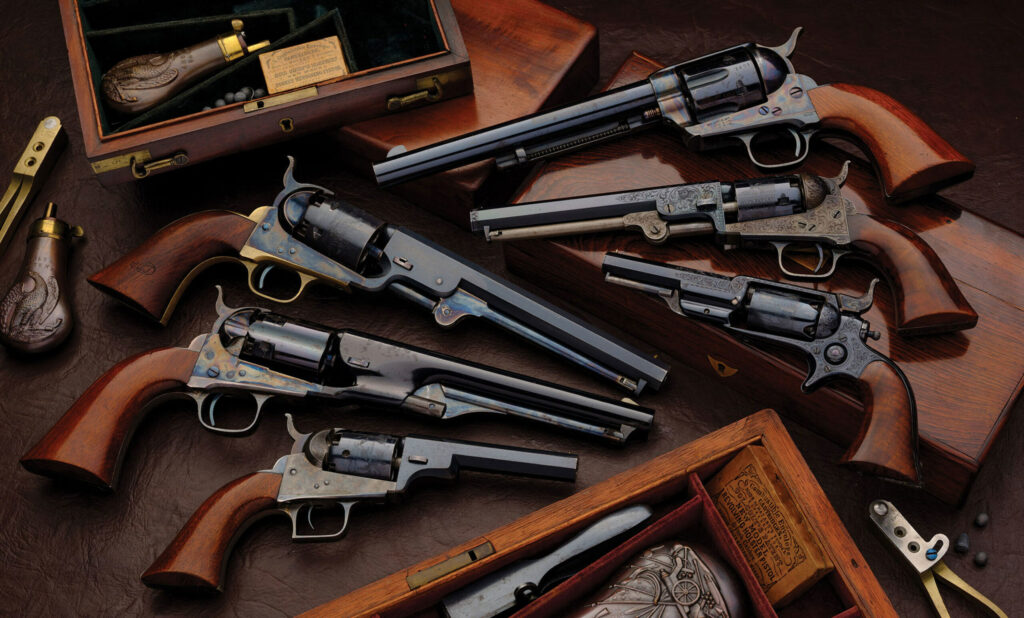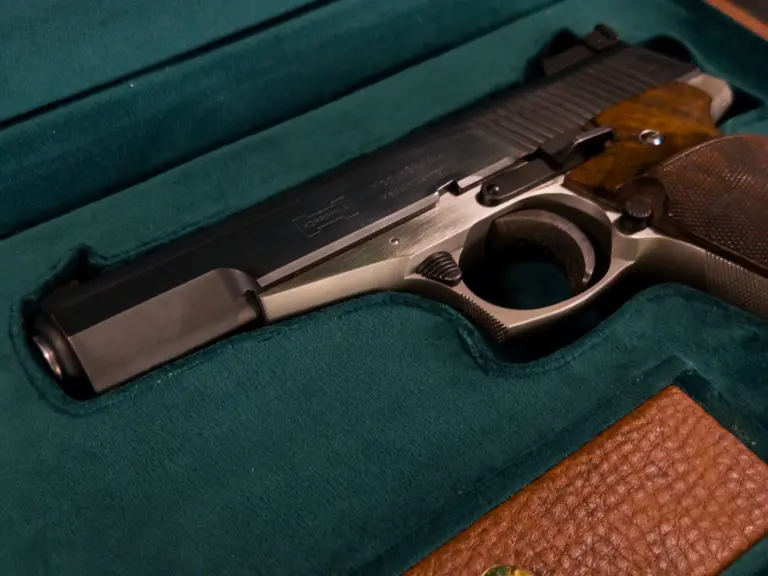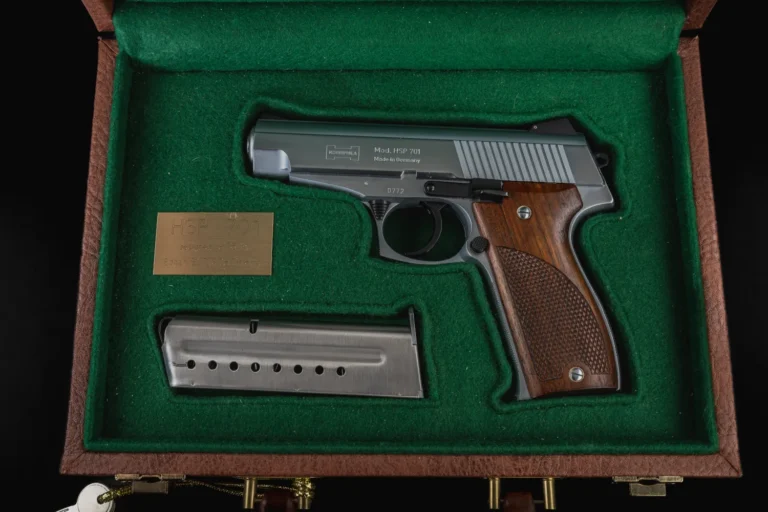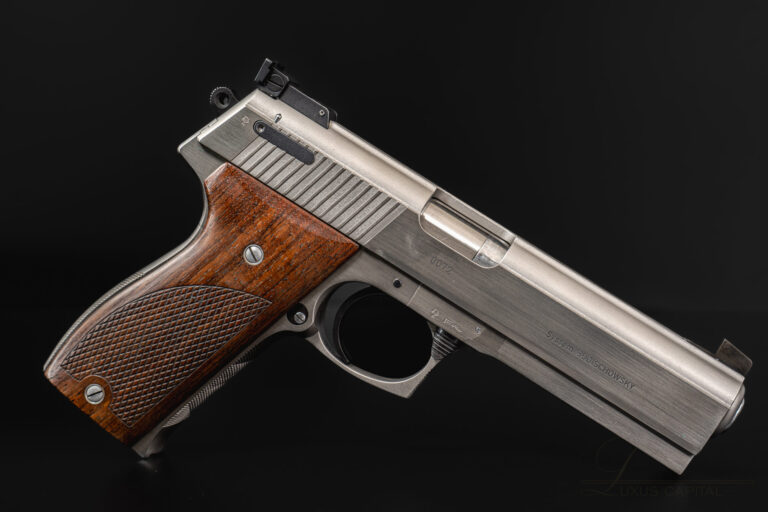You’re passionate about firearms, their history, and their craftsmanship. Are you interested in collecting items that tell the story of our past, as individuals and as nations? If so, you’re part of a vibrant community of firearm enthusiasts who value their artistry and history.
Investing in collectible firearms has many advantages that appeal to those who are passionate about firearms as well as those who want to make their money work. Whether we are discussing antique weapons or modern firearms, firearms are an attractive investment option for investors seeking more durable investments than stocks, bonds or cryptocurrencies.
Unlike a lot of other recreational pursuits, firearm collecting comes with its own set of legal considerations and regulations that must be understood. During this course, we’ll discuss the legal ramifications of firearm collecting, from federal regulations to state laws, and how you can ensure that your collection remains legal while also enjoyable.
Firearms Regulations in the Federal Government
A nation’s law governing the possession, ownership, and transportation of firearms and ammunition differs from a nation’s law, and there are often regional differences among nations as well. As a federal agency, the Bureau of Alcohol, Tobacco, Firearms and Explosives (ATF) oversees firearms regulation in the United States. It is the ATF’s responsibility to enforce the Gun Control Act of 1968 (GCA), which sets forth the requirements for the sale and transfer of firearms across state lines, as well as the National Firearms Act of 1934 (NFA), which regulates the sale and possession of certain types of firearms, such as machine guns, short-barreled rifles, short-barreled shotguns, silencers, and explosive devices.
It is paramount for firearm collectors to comply with federal regulations. Before acquiring firearms that fall under the NFA, such as machine guns or silencers, collectors must complete a thorough background check, pay the applicable taxes, and obtain a tax stamp from the ATF. A failure to comply with these regulations can result in severe penalties, including heavy fines and criminal charges.
The ATF requires a federal firearms license (FFL) if an individual or business intends to deal in, manufacture, or import firearms or ammunition commercially. An ATF license for collectors of curios and relics is valid only for transactions involving the acquisition, holding, or disposal of curio and relic firearms defined in 27 CFR 478.11. The application for such a license must be filed by someone who wishes to become a curio and relic firearm collector. According to the GCA, FFLs must be renewed every three years for eligible individuals.
It is important to note that most people who collect firearms as hobby do not need to comply with these provisions. A license generally applies to those who wish to sell or transfer firearms commercially (such as opening a gun shop), or to those who wish to be licensed because it provides them with legal latitude.
Firearms collectors should be aware of federal laws governing interstate transfers of firearms. The GCA prohibits the sale of firearms without going through a licensed dealer in the recipient’s state of residence. It means that if you wish to purchase a firearm from another state, it must be shipped to a licensed dealer in your state, who will conduct the necessary background check and transfer the firearm to you.
Laws governing firearms in each state
As well as federal regulations, firearm collectors in the US must also be aware of their state’s laws regarding firearm possession, sale, and transfer. Gun laws vary widely across the country, with some states imposing stricter restrictions and others adopting more permissive ones.
You should familiarize yourself with the laws in your state regarding the types of firearms you wish to collect, as well as any licensing or registration requirements that may apply. Some states may have restrictions on the possession of certain types of firearms, such as assault weapons or high-capacity magazines, whereas others may require a permit or a background check before purchasing a firearm or a certain type thereof, such as a handgun.
Local gun laws: Most states do not allow localities to enact their own gun laws; however, there are some localities, such as densely populated cities, that do. As a result of State Firearm Preemption Laws, which are generally associated with an increased rate of illegal gun trafficking in these areas, collectors residing there will also have to be aware of these laws.
In order to avoid running afoul of local regulations, collectors must stay informed about state-specific laws.
Laws affecting collectors at the international level
Collectors who intend to acquire firearms from overseas or participate in international trade shows and exhibitions must understand the applicable international laws and regulations. Both in the US and abroad, firearm import and export are subject to strict controls and licensing requirements.
Exports of firearms and related equipment, including parts and accessories, are governed by the Arms Export Control Act (AECA) and the International Traffic in Arms Regulations (ITAR) in the United States. Collectors wishing to import firearms from other countries must obtain the necessary permits and licenses from the U.S. Department of State’s Directorate of Defense Trade Controls (DDTC) and follow all relevant import laws and regulations.
Likewise, collectors must also be aware of the laws and regulations governing the export of firearms from other countries. Many countries have strict controls in place to prevent the unauthorized export of firearms and may require collectors to obtain permits or licenses from their respective government authorities before exporting firearms or related items.
Navigating the complexities of international firearms trade requires careful attention to detail and a thorough understanding of the applicable laws and regulations. By staying informed and seeking guidance from legal experts when necessary, collectors can ensure that their international transactions remain lawful and compliant.
Getting the most out of gun shows
As a result of their wide selection of firearms, accessories, and memorabilia, gun shows are popular destinations for firearm collectors. Additionally, gun shows offer a chance for like-minded individuals to congregate and share their passion and knowledge of firearms. However, collectors need to be aware of the legal considerations and regulations that apply to purchasing firearms at gun shows.
In order to ensure compliance with federal and state laws regarding the sale and transfer of firearms, you must buy or sell firearms at a gun show. As with firearms purchased from a brick-and-mortar store, firearms purchased from licensed dealers at a gun show are usually subject to the same background checks and paperwork requirements.
Different states may have different regulations regarding private gun show sales between individuals. There are some states that require all firearm transfers, including private sales, to be conducted through a licensed dealer, while others do not. When buying or selling firearms at gun shows, it is crucial to know your state’s laws regarding private firearm sales.
Also, collectors should exercise caution when buying firearms from private sellers at gun shows, since there may not be as much oversight and accountability as when purchasing through licensed dealers. Obtaining the necessary documentation and paperwork to prove lawful ownership is crucial to verifying the authenticity and legality of any firearm being purchased.
With knowledge and awareness of the applicable laws and regulations, collectors can enjoy the experience of attending gun shows while ensuring that their transactions are legal.
Purchases made online are governed by the following laws
Gun collectors have increasingly turned to the Internet to buy firearms and accessories, but buying firearms online entails legal aspects that collectors need to be aware of.
If a buyer purchases firearms online, they must adhere to the same laws governing the sale and transfer of firearms that they would if they bought them in person or at a gun show. In addition to completing the required background check and paperwork, you must also comply with any licensing or registration requirements that may apply.
GCA notes that online purchases must be conducted through an FFL holder (such as a reputable local gun store) at the receiving end of the transaction, through which the purchaser can complete the required paperwork and conduct a background check before taking legal possession of the firearm.
Moreover, buyers should be cautious when purchasing firearms from online marketplaces and auction sites, since there may be less oversight and accountability than if they bought from licensed dealers. To ensure that the firearm purchased complies with all applicable laws and regulations, it is crucial to thoroughly research the seller, verify its authenticity, and verify the legality of the firearm being purchased.
It is a rewarding and enjoyable hobby to collect firearms because it allows enthusiasts to discover their history, craftsmanship, and cultural significance. The possession, sale, and transfer of firearms is governed by legal considerations and regulations, however, that collectors should be aware of. In the US, most firearm collectors fall under the same rules and regulations as most of the general public when it comes to firearms collection. You can ensure your collection remains both compliant and enjoyable by staying up to date on the local laws that affect you!





